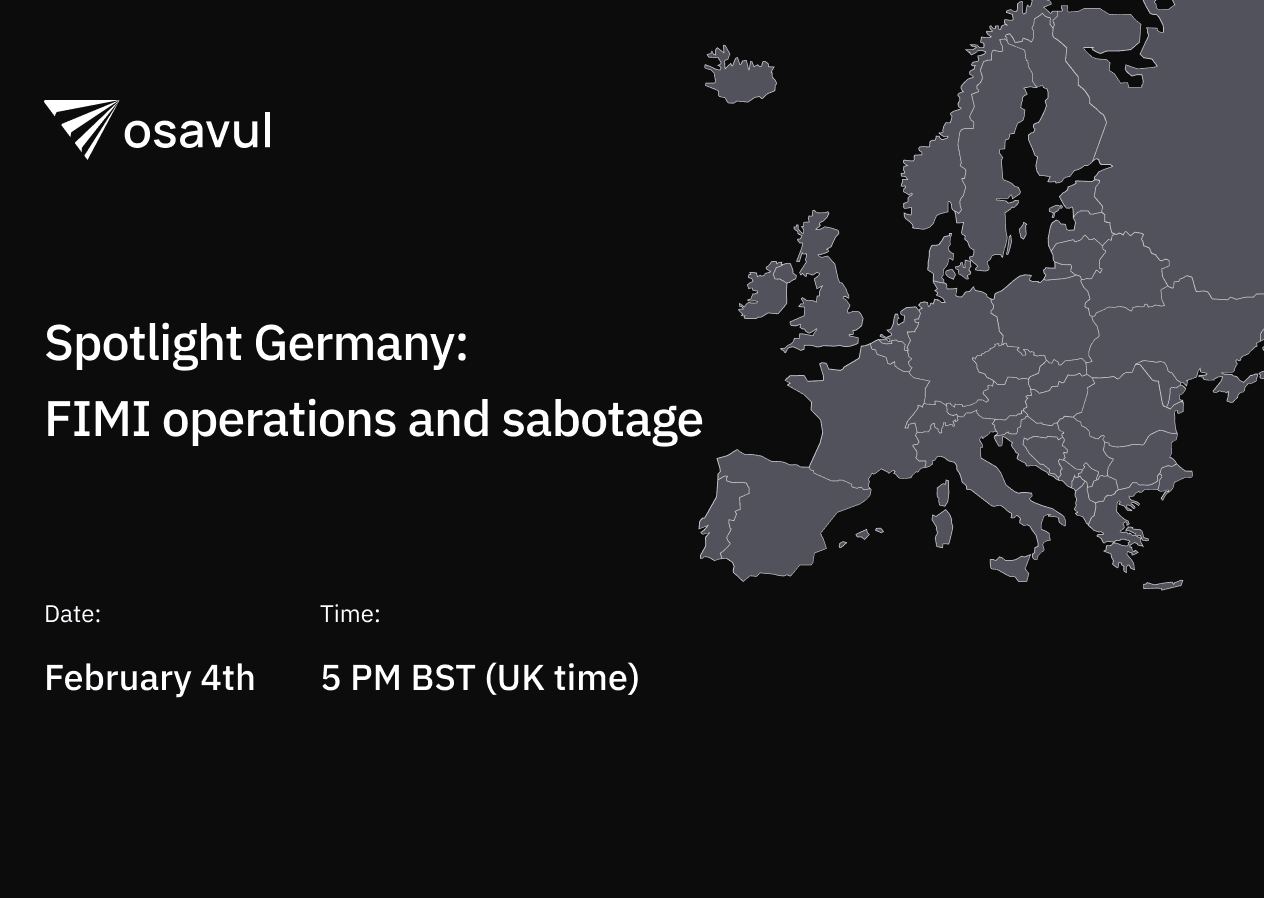False information, fake news, and disinformation campaigns are a global struggle that many countries are grappling with. Negative consequences include:
- undermining the trust of the public
- distorting policies and information
- threatening the integrity of the government.
Some countries are more vulnerable to fake news, and Taiwan is one of them.
Taiwan has a complicated relationship with China and has become a target of disinformation, particularly from its powerful neighbor. The far-reaching effects of Taiwan's disinformation must be dealt with, both for its own good and to preserve the reputation of other nearby nations.

The Problem of Disinformation in Taiwan
That’s because fake news distorts public opinion, harms selection outcomes, and creates divisions in civil society. They have changed the narrative about Taiwan and how the nation approaches critical issues, such as its independence, its relationship with China, and where the country stands on important international issues.
One of the most significant examples of how misinformation against Taiwan has been harmful is during the 2020 election. Throughout the time leading up to the election, false information was spread about candidates and rumors were abundant and designed to confuse voters.
Candidates’ personal lives were also targeted, as well as the spreading of disinformation about their policies. In some cases, fake videos were distributed, attempting to discredit certain candidates and damage their reputations. This creates concern about the integrity of the voting process and how outside nations can influence it, particularly China.
Chinese Disinformation Campaign Against Taiwan
There’s a big question asking can Taiwan fight off disinformation sustainably. A large part of the problem arises because China is using fake news as a way to exert its influence over the nation and change the perceptions around the world about Taiwan. The Chinese government calls Taiwan a breakaway nation, and they are working hard to undermine the island’s government and change the public perception of the country. At the same time, China is using false news to promote its own agenda.
Unfortunately, there is no easy solution to the question, ʼCan Taiwan fight Chinese disinformation? With the use of social media, China has created fake accounts and pretends to be citizens of Taiwan, using that stance to spread disinformation and influence public opinion in the nation. The result of these fake accounts is a more pervasive division, damaging Taiwan’s reputation and identity, both domestically and internationally. These false narratives make it hard for citizens of Taiwan to discern what’s real and what’s not, altering public opinion and skewing elections.
China has also been known to use more traditional channels, making it difficult for Taiwan to fight off disinformation. Using print and television media, China broadcasts information criticizing Taiwan’s government, policies, and citizens. This leads others to question its legitimacy and causes people to wonder if Taiwan will reunify with China. When Taiwanese media outlets pick up these campaigns, their own nation is victimized, as some mistakenly believe the information to be true, and it’s hugely influential in how Taiwan fights the disinformation war.
It’s further difficult for this democratic unitary state to fight off disinformation when China uses deepfake technology to create fake videos and audio recordings, which are then spread through media outlets and social media platforms. Such fake news campaigns foster distrust by misleading the Taiwanese population and spreading rumors about political candidates. Deepfake technology has become quite sophisticated, making it very hard for people to determine what is true and what is not, which damages trust in all kinds of media.
Can Taiwan continue to fight off disinformation? The damaging effects of China’s Taiwan disinformation efforts are profound. There’s a growing distrust on the part of the country’s citizens, especially toward the media and the government. This makes it even easier for fake news to spread, continuing a cycle of misinformation being shared. In some cases, such disinformation has contributed to skewed voter activity and elections that are more aligned with China’s values and interests than Taiwan’s.

Importance of Using Osavul’s Platform Against Misinformation
The question remains - how can Taiwan fight off disinformation? Fighting disinformation requires a many-pronged approach, but one of the most important is a program to help Taiwan detect and flag fake news before it becomes viral. The Osavul tool is a cutting-edge platform that uses advanced cloud-based technology to flag and analyze disinformation in the Asia-Pacific region.
How Does Osavul Work to Combat Disinformation?
Using a blend of artificial intelligence and algorithms associated with machine learning, the software analyzes data from social media, television, radio, and news sites, identifying potential disinformation in real-time. This gives authorities and officials the chance to stop the spread of fake news, responding by debunking the information and letting the general public know that the campaign is not real.
One of the best aspects of using Osavul is its feature that can trace where the Taiwan disinformation originated. By creating a map of how misinformation is spread, Osavul helps identify its source, whether it’s one person or a group of people. This contributes to helping Taiwan fight off disinformation by creating countermeasures, as well as regulations that hold offenders responsible for spreading fake news.
Osavul is also valuable for its educational component. It can be used to teach citizens how to discern between misinformation and legitimate news. When the population is aware of the issue and are equipped to recognize potentially damaging fake information, they are better prepared to stop its spread and report it to the appropriate authorities.
Disinformation Monitoring and Combating Trends in Taiwan
Steps and tactics in how Taiwan fight off disinformation have become better with time. The nation has made significant progress in how it monitors and fights disinformation. Along with the government, civil society, and the private sector have taken on roles that aid the effort, creating a unified attack against fake news in Taiwan.
One of the key ways that Taiwan has worked to combat disinformation is the use of technology to flag and analyze misinformation. In addition to using Osavul, Taiwan also makes use of AI and big data to keep an eye on online content, looking for patterns and signs of false news. This real-time analysis is an important way to flag misinformation before it spreads.
Additionally, the government has created public awareness campaigns, alerting residents to the danger of spreading fake news. Civil society works to fact-check and debunk fake news, working to provide only reliable information to the population. Collectively, these efforts can dramatically reduce the harmful effects of disinformation.
Conclusion
The protective measures that Taiwan has taken to combat misinformation can be used as a model for other nations around the world. Using technology, educating the residents of the country, and collaborating with international allies, Taiwan is doing good work. However, there’s still the risk, and continued vigilance is vital.
By remaining on top of the patterns and trends regarding fake news, Taiwan can continue combating disinformation for its own benefit, while also modeling how it’s done for other nations to benefit from.










